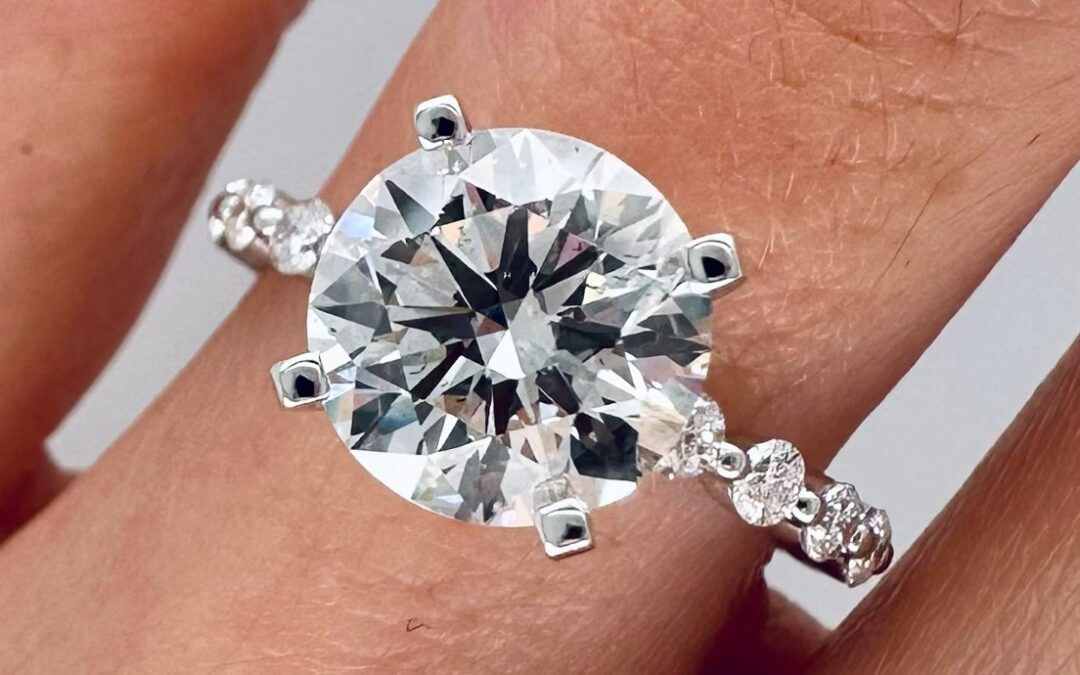In recent years, a new trend has emerged in the world of engagement rings: lab-grown diamonds. These sparkling gems offer an ethical and environmentally friendly alternative to traditional mined diamonds. But what exactly are lab-grown engagement rings, and why are they gaining popularity? Let’s dive into the world of lab-grown diamonds to uncover the answers.
Understanding Lab-Grown Diamonds
How are lab-grown diamonds created?
Lab-grown diamonds are cultivated in controlled environments using advanced technological processes that mimic the natural conditions under which diamonds form in the earth’s mantle. By replicating these conditions, scientists are able to produce diamonds that are chemically and physically identical to their natural counterparts.
Quality comparison with natural diamonds
One of the most common misconceptions about lab-grown diamonds is that they are of inferior quality compared to natural diamonds. However, numerous studies have shown that lab-grown diamonds exhibit the same chemical composition, crystal structure, and optical properties as natural diamonds.
Environmental impact
Unlike traditional diamond mining, which often involves environmentally destructive practices such as land disruption and water pollution, lab-grown diamonds have a significantly lower environmental impact. By eliminating the need for mining, lab-grown diamonds help reduce carbon emissions and preserve natural ecosystems.
Advantages of Choosing Lab-Grown Engagement Rings
Affordability
One of the most appealing aspects of lab-grown engagement rings is their affordability. On average, lab-grown diamonds are priced 20-40% lower than natural diamonds of comparable quality, making them a budget-friendly option for couples looking to tie the knot without breaking the bank.
Ethical considerations
For socially conscious consumers, the ethical implications of diamond mining are a significant concern. Unlike natural diamonds, which are often associated with issues such as child labor and human rights abuses, lab-grown diamonds are produced in ethical and transparent conditions, ensuring that no harm is done to workers or the environment.
Customization options
Another advantage of lab-grown engagement rings is the wide range of customization options available. Because lab-grown diamonds are created in controlled environments, jewelers have greater flexibility in shaping and cutting the stones to meet their customers’ specific preferences, resulting in truly unique and personalized pieces.
Quality and Durability
Comparable quality to natural diamonds
Contrary to popular belief, lab-grown diamonds are not “fake” or “synthetic” diamonds—they are real diamonds with the same chemical composition and physical properties as natural diamonds. In fact, many experts argue that lab-grown diamonds are actually superior in terms of purity and clarity, as they are grown under controlled conditions free from the impurities and flaws often found in natural diamonds.
Strength and longevity
Lab diamonds are just as durable and long-lasting as natural diamonds, making them an excellent choice for engagement rings that will be worn and cherished for a lifetime. With proper care and maintenance, lab-grown diamonds can withstand the rigors of daily wear and retain their brilliance and sparkle for generations to come.
Environmental Impact
Reduced carbon footprint
One of the most compelling reasons to choose a lab grown engagement ring is its significantly lower carbon footprint compared to mined diamonds. According to studies, the carbon emissions associated with lab-grown diamonds are up to 90% lower than those generated by traditional diamond mining, making them a more sustainable choice for environmentally conscious couples.
Conflict-free sourcing
In addition to reducing carbon emissions, lab grown engagement rings also help eliminate the issue of “blood diamonds” or “conflict diamonds,” which are mined in war zones and used to finance armed conflicts and human rights abuses. By opting for a lab-grown diamond, couples can rest assured that their purchase is not contributing to these unethical practices.
Customization Options
Design flexibility
One of the biggest advantages of lab grown engagement rings is the freedom they offer in terms of design and customization. Whether you prefer a classic solitaire setting or a more modern halo design, lab-grown diamonds can be tailored to suit your individual style and preferences, resulting in a truly one-of-a-kind piece that reflects your unique personality and love story.
Personalization opportunities
In addition to choosing the perfect setting for your lab grown engagement rings, you can also personalize your engagement ring with meaningful details such as engraving, colored gemstone accents, or a custom-designed band. These personalized touches add an extra layer of sentimentality to your ring and make it even more special to you and your partner.
Cost Comparison
Cost savings compared to natural diamonds
One of the most significant advantages of lab grown engagement rings is their lower cost compared to natural diamonds. Because lab-grown diamonds are produced in a controlled environment using advanced technology, the process is more efficient and cost-effective, resulting in savings that are passed on to the consumer in the form of lower prices.
Factors influencing pricing
While lab-grown diamonds are generally more affordable than natural diamonds, there are several factors that can influence their pricing, including the size, cut, color, and clarity of the stone, as well as the reputation of the retailer and the demand for lab-grown diamonds in the market.
Ethical Considerations
Conflict-free sourcing
One of the most compelling reasons to choose a lab grown engagement rings is the assurance that it is sourced ethically and responsibly. Unlike natural diamonds, which are often associated with issues such as child labor, forced labor, and environmental degradation, lab-grown diamonds are produced in controlled environments that prioritize ethical and sustainable practices.




